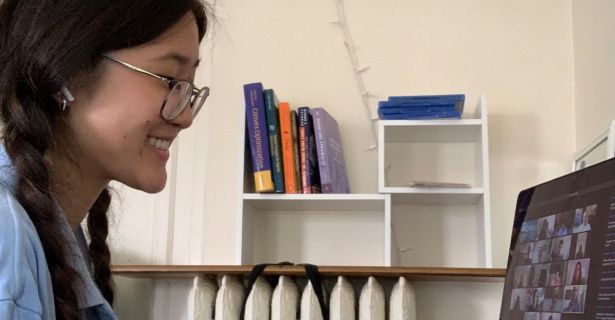Instead of commuting to the U.S. Department of Energy’s headquarters in Washington, D.C. every morning, I wake up at 8:30am and log onto my laptop by 9am. Given that Covid-19 is still among us, this is the new normal. Having been a virtual student for more than a year now, it feels perfectly natural working from home every morning, attending Zoom meetings, and gathering information from the Internet. A major in Economics and International Relations, I have always been interested in renewable energy and believe that its importance is only growing, as climate change becomes an increasingly urgent crisis. This summer, I am working under the DOE’s SWIFt initiative, which is short for Sustainable Wastewater Infrastructure of the Future and deals specifically with wastewater treatment plants. Like its name might indicate, these treatment plants essentially treat wastewater and turn it into an effluent that can either get disposed of or reused in some way. Interestingly, it turns out that wastewater treatment plants use a ton of energy, which is why SWIFt is important. The initiative partners with various wastewater utilities and assists each one in developing a unique program that will help it improve energy efficiency and adopt advanced energy technologies, such as renewable energy.
Right now, among many other tasks, SWIFt is working on recruiting wastewater treatment facilities in Indiana, since it has a partnership with Indiana University. For the last two weeks or so, I have been working on gathering information on wastewater treatment facilities all across Indiana, so that we can reach out to them and encourage them to participate in SWIFt’s toolkit training. The toolkit training is meant for smaller facilities that are interested in energy management and increasing energy savings. In the process, I have been learning the importance of stakeholder engagement, trying to discover information on every facility I possibly can.
In recent days, I have been transitioning to a project that I will be working on for the rest of the summer, which is making the business case for these treatment facilities to implement renewable energy. Of course, a massive pro – in fact, the biggest pro – is that it is good for the environment. Sometimes, however, it is harder for facilities to justify spending hundreds of thousands, or even millions, on implementing renewable energies such as biogas or solar. I have been researching wastewater treatment plants that have implemented solar technology, and it seems to be a big hit, with almost all facilities declaring either their projected savings or how much money they have already saved. Once I have gathered all the necessary information, I will be building out a report that will hopefully help recruit various facilities. It is incredible to think that just a few weeks ago, I had never even heard of a wastewater treatment plant, though I now know that they are quite important and deserving of our attention. I do love to find inspiration in unexpected places, and the work I am doing certainly gives me hope for the planet’s future.

